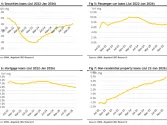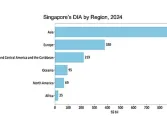
How YAS MicroInsurance puts a price on non-fungible tokens
They are one of the first insurtech firms to insure NFTs.
Insurtech firm YAS MicroInsurance has done what many thought was impossible: putting a price on NFTs or non-fungible tokens—a digital file a person cannot even physically use or consume.
As one of the first insurtechs to give NFT insurance in 2021, Andy Ann, co-founder and CEO of YAS MicroInsurance revealed to Insurance Asia that pricing for NFT can be derived in a few ways, such as past transaction values.
“First of all, NFT is a tangible asset, it is a smart contract, and we are insuring the smart contract on both theft and loss coverage. The pricing principle is similar to collectable insurance, which is priced in terms of premium and coverage. The premium pricing is based on risk levels calculations, and the coverage amounts up to x% of the asset is also standard practice. We target to lower the premium when we scale up to a specific mass volume in the long run,” Andy said.
According to Andy, all the NFTs that they have insured so far are on average 2-5 Ethereum (ETH) with the bigger sizes ranging from 12-22 ETH.
"As it’s a very new product, we have started to compute premiums at 20% of the NFT price and cover 90% of the purchasing price,” Andy added.
The NFT market is currently growing at an accelerating rate. In 2020, the market was worth around $350m which ballooned to around $24b at the end of 2021.
According to Andy, the initial idea of launching an insurance product for NFTs came from their partnership with several musicians, artists, exhibitions, and galleries. As the rapid growth in asset value of NFT grew, YAS believed that NFTs are the same as classic cars, therefore they needed an insurance solution.
With that, YAS pioneered NFTY, an NFT insurance that protects these digital assets from capital loss such as theft or malicious attacks on digital wallets and the marketplace.
Unlike current insurance products that protect physical assets, YAS dedicated its policies to "digital collectables only" that are uniquely registered on the blockchain. As all the NFT data is stored on a public blockchain representing digital property rights, YAS's contract insurance policies define the NFT values and fully insure at their market value.
Need for protection
Andy explained that this is the perfect time to launch this product because as the market for NFTs grows, so do attacks and thefts.
“We see a handful of hacks such as the Banksy scam with fake banksy NFT was listed on Open Sea and sold for $350,000; hacks on Nifty Gateway; Evolved Apes; Bored Monkey Yacht Club phishing scam stole $2.2m; and most recently we see Monkey Kingdom had a phishing link that over $1.3m worth of cryptocurrencies were stolen,” Andy said.
With NFTY, 90% of the purchase price of the NFT is covered. However, theft coverage can only be activated if it is reported to local authorities within 24 hours of its theft or if the insured item is not stored in a secure location with at least two-factor authentication.
NFTY also covers and pays administrative costs directly to the NFT minting platforms that offer such services for accidental loss. However, in case of disputes, the insured must deal with the platform directly. Coverage for loss will not be paid if it is not reported to the insurer within seven days of loss in order to activate the insurance policy.
In order to activate the insurance policy, YAS will need to verify the policyholder and its wallet
address. YAS’s KYC process includes the policy holder’s ID, email, and wallet address.
Threats and future outlook
Some countries still have a negative stance on cryptocurrencies. Singapore, for example, recently warned cryptocurrency service providers not to promote their services to the public as “highly risky and not suitable for the general public.”
Could this have a domino effect on NFTs?
“As digital assets represent an increasingly large percentage of all investment portfolios over time, the need for digital asset insurance and risk management, such as for NFTs, will only increase as well. We don’t see NFT as a form of currency, rather, we see it as an asset, similar to a watch, a classic car, or a piece of physical artwork,” Andy explained.
Looking to the future, Andy believes that the NFT market would grow a hundred fold in the next few years representing the beginning for the insurance business of the market as artists, photographers, gamers, musicians, collectors, brands, and all kinds of curators come together.
“We have overwhelming requests from all kinds of businesses calling us including marketplaces, platform owners, hot and cold wallets, exchanges, custodian, payment gateways and brands. All these companies will need to protect their clients in NFT investments, and protect themselves from the volatility of the crypto currency and the risk of thefts and attacks on NFT wallets,” Andy said.
For the moment, Andy sees NFTs taking over the art industry because of its underlying blockchain technology.
“Without a centralised team or even us as a centralised team to validate art and artists, scammers are likely to flood the market. So NFT insurance can definitely help to prevent scammers from stealing art and money. I think 2022 will be a hot market trend for NFT insurance,” Andy added.



















 Advertise
Advertise









